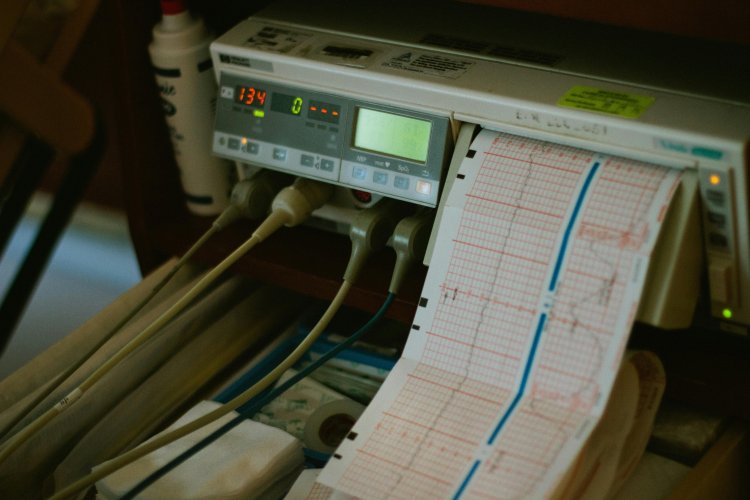Innovations in Healthcare: Exploring New Medical Technologies
Innovations in Healthcare: Exploring New Medical Technologies

Table of Contents:
1. Introduction
2. Telemedicine: Revolutionizing Healthcare Delivery
3. Robotic Surgery: Advancements in Surgical Precision
4. Artificial Intelligence in Healthcare: Enhancing Diagnosis and Treatment
5. 3D Printing in Medicine: Customized Solutions for Patients
6. Wearable Health Technology: Monitoring and Managing Health in Real-Time
7. Gene Editing: Potential Breakthroughs in Treating Genetic Disorders
8. Nanomedicine: Targeted Drug Delivery and Disease Detection
9. Virtual Reality in Healthcare: Applications in Therapy and Training
10. Blockchain Technology in Healthcare: Securing Medical Records and Transactions
11. Conclusion
Introduction:
The field of healthcare is witnessing rapid advancements, thanks to innovative technologies that are revolutionizing the way medical care is delivered and managed. In this blog, we will explore some of the latest medical technologies that are reshaping the landscape of healthcare and improving patient outcomes.
1. Telemedicine: Revolutionizing Healthcare Delivery:
Telemedicine allows healthcare professionals to remotely diagnose, monitor, and treat patients using telecommunications technology. This section will explore the benefits of telemedicine, including increased access to care, improved patient convenience, and reduced healthcare costs.
2. Robotic Surgery: Advancements in Surgical Precision:
Robotic surgery combines robotics and minimally invasive techniques to perform complex surgical procedures with greater precision and control. Here, we'll discuss the evolution of robotic surgery, its applications across various specialties, and the potential benefits for patients and surgeons.
3. Artificial Intelligence in Healthcare: Enhancing Diagnosis and Treatment:
Artificial intelligence (AI) is transforming healthcare by enabling machines to analyze complex medical data and assist healthcare professionals in the diagnosis, treatment planning, and patient care. This section will explore AI applications in medical imaging, predictive analytics, and personalized medicine.
4. 3D Printing in Medicine: Customized Solutions for Patients:
3D printing technology is revolutionizing the healthcare industry by enabling the production of patient-specific medical devices, implants, and anatomical models. Here, we'll discuss the potential applications of 3D printing in surgery, prosthetics, and tissue engineering.
5. Wearable Health Technology: Monitoring and Managing Health in Real-Time:
Wearable health technology, such as smartwatches and fitness trackers, allows individuals to monitor vital signs, activity levels, and other health metrics in real-time. This section will explore the role of wearables in preventive care, chronic disease management, and remote patient monitoring.
6. Gene Editing: Potential Breakthroughs in Treating Genetic Disorders:
Gene editing technologies, such as CRISPR-Cas9, offer the potential to correct genetic mutations and treat a wide range of genetic disorders. Here, we'll discuss the ethical considerations, challenges, and promising applications of gene editing in medicine.
7. Nanomedicine: Targeted Drug Delivery and Disease Detection:
Nano medicine involves the use of nanoparticles for targeted drug delivery, imaging, and diagnostics. This section will explore the unique properties of nanoparticles, their applications in cancer treatment, and emerging nanotechnologies in healthcare.
8. Virtual Reality in Healthcare: Applications in Therapy and Training:
Virtual reality (VR) technology is being used in healthcare for therapeutic interventions, medical education, and surgical simulation. Here, we'll explore the potential benefits of VR in pain management, rehabilitation, and immersive medical training.
9. Block chain Technology in Healthcare: Securing Medical Records and Transactions:
Block chain technology offers a secure and transparent platform for storing and sharing medical records, ensuring data integrity and patient privacy. This section will discuss the potential of block chain in healthcare data management, interoperability, and healthcare supply chain management.
Conclusion:
New medical technologies are transforming the way healthcare is delivered, making it more accessible, efficient, and personalized. By embracing innovation, healthcare professionals can improve patient outcomes, enhance clinical workflows, and address the evolving needs of patients and communities.
What's Your Reaction?





















